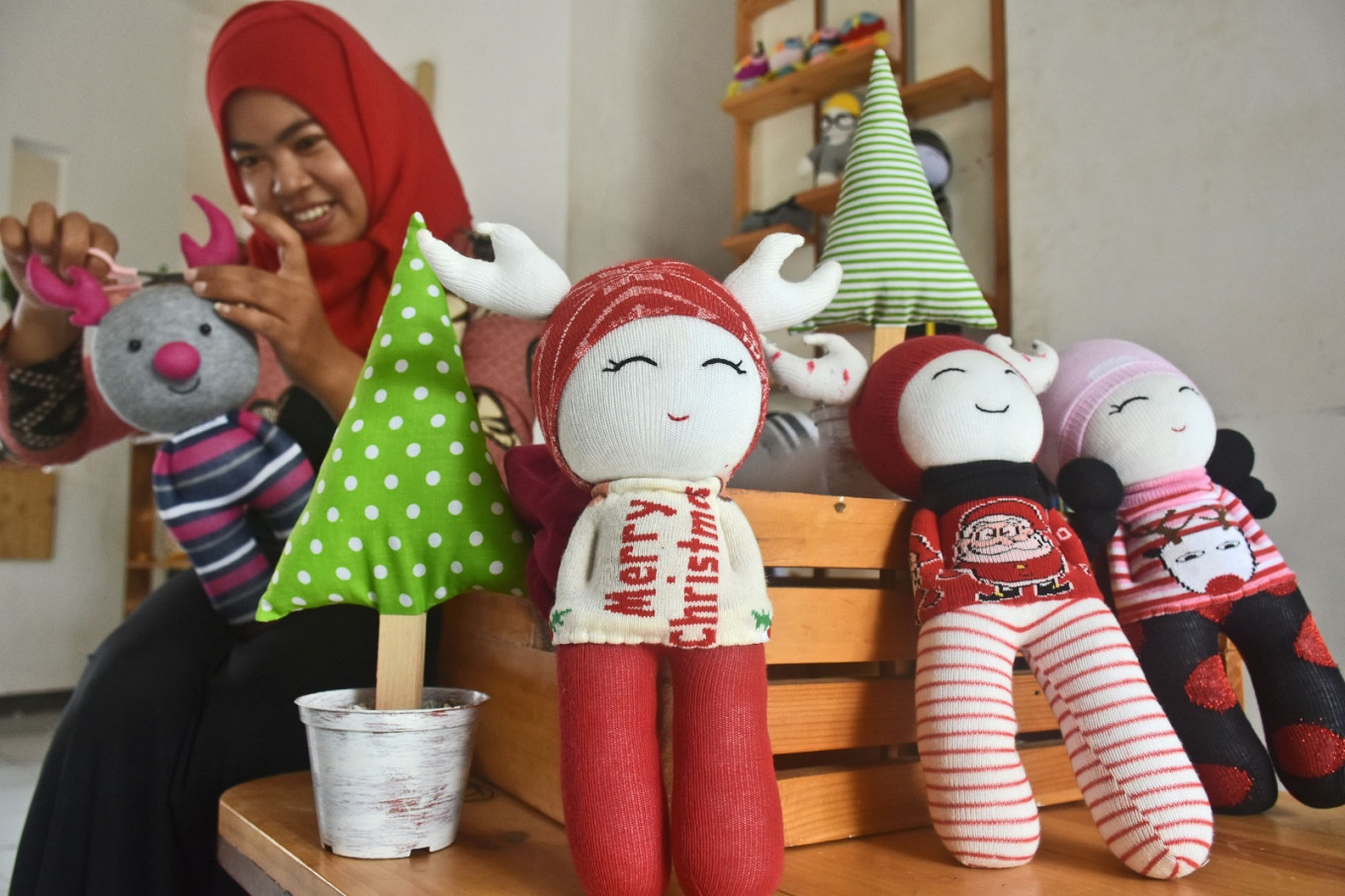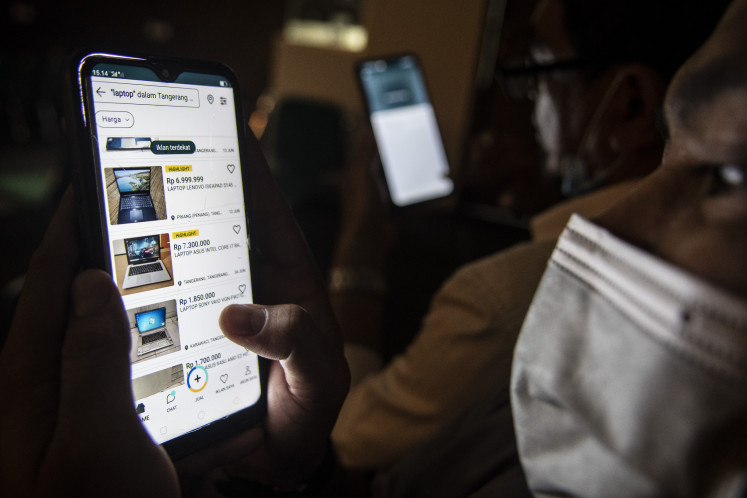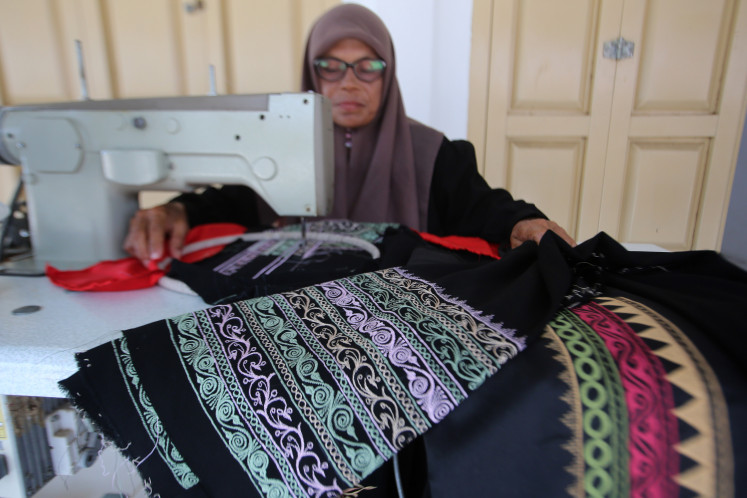Popular Reads
Top Results
Can't find what you're looking for?
View all search resultsPopular Reads
Top Results
Can't find what you're looking for?
View all search resultsHere comes the annual troublemaker: Christmas
For at least 20 years, every December, Indonesian Muslims have been reminded of the fatwa by the Indonesian Ulema Council (MUI) that calls it haram for Muslims to greet Christians with the words “Merry Christmas” during the holiday season.
Change text size
Gift Premium Articles
to Anyone
A
t least three issues crossed my mind when I read yet another controversial announcement that was later retracted following a public uproar, of a famous bakery on Christmas greetings.
First, my recent conversation with a senior government official, who said a non-Muslim must first and foremost be at least twice as good as other contenders to win a promotion in the bureaucracy.
Second, the consoling messages from two Muslim friends who say they always miss Christmas, albeit for practical and economic reasons.
The third, and probably the most intriguing issue, is that masterpiece by John Lennon, “Imagine”. Let me just cite some parts. You don’t need further explanation of this song, right? Many Indonesians love this song, but I don’t know how they will react when they realize that the legendary British singer wished there was no religion!
Imagine there’s no heaven //
No hell below us //
And no religion, too //
Imagine all the people//
Living for today [...]
For at least 20 years, every December, Indonesian Muslims have been reminded of the fatwa by the Indonesian Ulema Council (MUI) that calls it haram for Muslims to greet Christians with the words “Merry Christmas” during the holiday season. Protestants and Catholics (including me) have become very familiar with the ban and no longer deem it a serious matter.
To be honest, the statement of an ulema, who says no one knows exactly when Jesus was born, is undeniable, although it is not surprising at all, because it happened more than 2,000 years ago when birth registration was practically absent.
Do you still remember the uproar that marked the April general elections? The camp of presidential contender Prabowo Subianto questioned General Elections Commission (KPU) data that showed millions of Indonesians having the same birthdate. The answer is, many Indonesians in the 1960s, especially in Java, did not have official birth certificates.
Over the weekend a Tous Les Jours outlet in an upscale mall in Jakarta announced through a leaflet that, to comply with a sharia regulation stipulated by the Halal Products Guarantee Law, it could no longer write Christmas, Chinese New Year’s or Valentine Day greetings on its cakes.
The South Korean bakery chain office in Jakarta quickly denied it was behind the decision. The MUI also said it had nothing to do with the policy.
Earlier this month, Religious Affairs Minister Gen. (ret) Fachrul Razi and popular Surabaya Mayor Tri Rismaharini openly criticized the MUI’s East Java branch for issuing a circular that asks Muslims not to convey greetings associated with other religions. “For Muslims, it’s enough to say assalamu 'alaikum,” the council said in a statement.
Government officials, including President Joko “Jokowi” Widodo and his former contender in two presidential elections, Defense Minister Prabowo Subianto, ignore such a call.
They have consistently opened their official remarks with an Islamic greeting and then greeted the Christian audience with shalom and Hindus with om swastiastu and Buddhists with namo buddhaya.
Back to the three concerns of mine, a senior government official told me about his struggle to get the highest position he wanted in his career. He is fully aware that as a non-Muslim he must put up extra effort to beat the
competition.
“I should be at least twice as good in all criteria as my Muslim colleagues to join the officials shortlisted for promotion,” he recalled.
The same “standard” applies when the competition reaches the final stage, says the alumnus of a reputable national university and an Australian university.
The official, who works in a state agency dealing with land affairs, is awaiting the final decision from his boss on his third attempt.
He says he does not want to act like a crybaby. He believes such a practice of giving privilege to the majority is in place in any part of the world, including in the West.
“I hope getting the promotion will be my Christmas present this year,” said the civil servant, who has worked for about 25 years at the state agency.
In response to the Christmas greeting ban, a highly respected Indonesian Muslim tried to console his Protestant and Catholic friends, who might feel offended by the controversy over the bakery chain policy.
“Most Indonesians, including Muslims, always look forward to the Xmas sales at shopping malls,” he wrote in a WhatsApp group message on Monday.
Another group member, who works for a company that provides both Idul Fitri and Christmas holiday bonuses (THR) to its employees, replied. “I always look forward to celebrating Xmas too... for THR, mas!”
But a Catholic member could not stop complaining. “Why does Christmas become an annual troublemaker in my beloved motherland?” he told the same chat group.
The Christmas greeting controversy arises as Christians are bracing for Advent, which will fall on Dec. 1. Advent, or “coming” in Latin, is the period of four weeks starting and ending with a Sunday before Christmas when Christians prepare themselves for Jesus’ arrival. In Indonesia, as to other parts of the world I have no knowledge at all, Catholics are strictly suggested to not celebrate Christmas before Dec. 25, while for Protestant churches such a rule is almost inexistent. The whole of December turns into an Christmas celebration for them.
Indeed, religious minorities face the same problems across the world. But let me sing Lennon’s reflective song. He may be right in his thought:
You may say that I’m a dreamer // But I’m not the only one.











